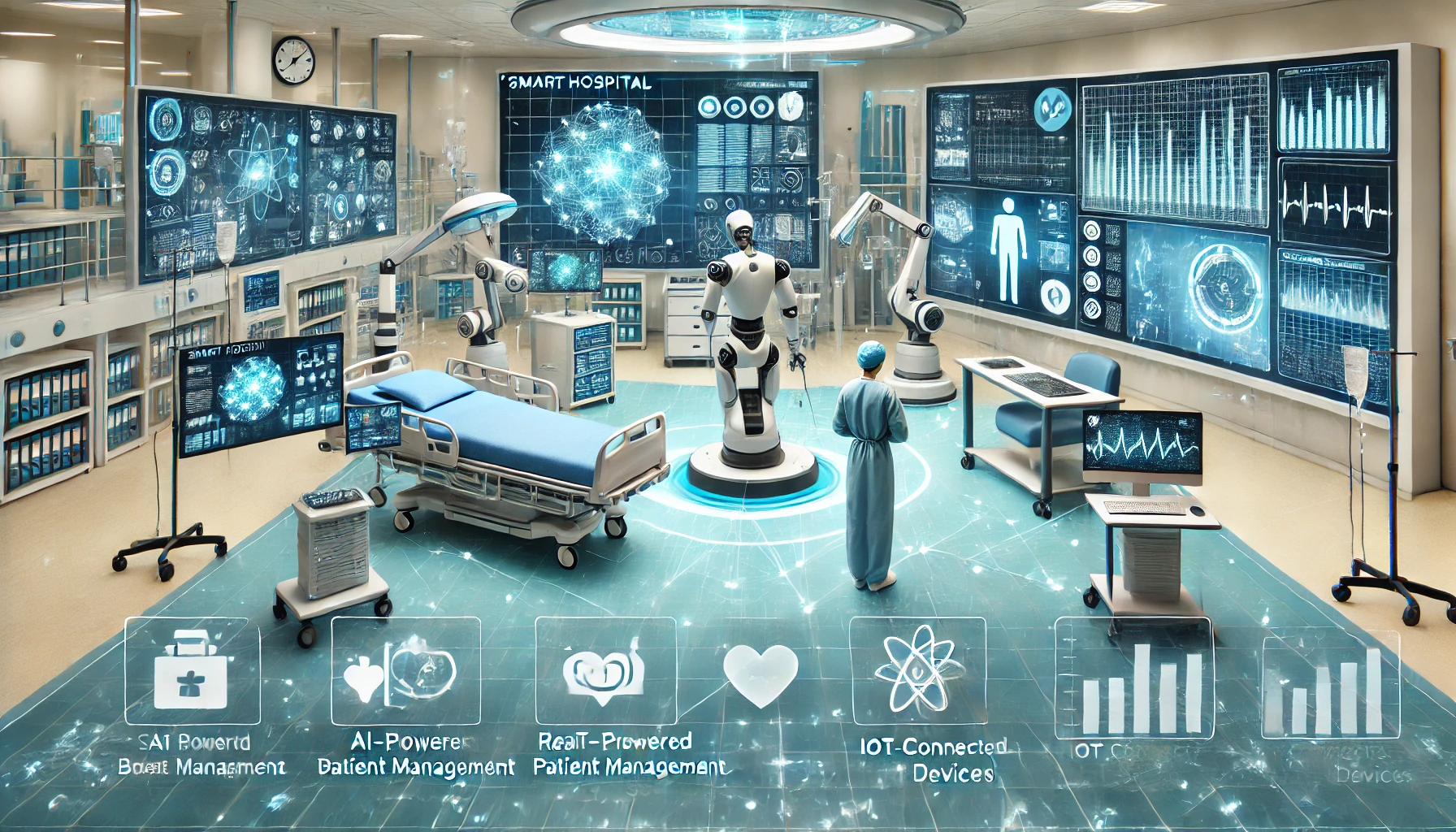Smart Hospitals of Tomorrow: How IoT and AI Are Revolutionizing Patient Care

Welcome to the Future of Healthcare
Imagine walking into a hospital where every piece of equipment, every doctor, and every piece of data are seamlessly interconnected, ensuring the best care possible without a single hitch. Welcome to the era of smart hospitals, where the Internet of Things (IoT) and Artificial Intelligence (AI) are coming together to create healthcare facilities that look like they came straight out of a sci-fi movie. But it’s not fiction, it’s happening now. These smart hospitals are using advanced technologies to revolutionize patient care, and guess what? They’re doing it with a sprinkle of humor too!
AI in Patient Management Systems: No More Waiting Room Blues
Let’s be honest: nobody enjoys the waiting room. But in smart hospitals, AI-powered patient management systems ensure that waiting times are a thing of the past. These systems predict patient inflow, track real-time data, and optimize appointment scheduling like a super-efficient personal assistant. AI doesn’t just stop there—it also helps with diagnostics, reducing human error and speeding up processes that usually take ages. Who knew that a bit of code could have such bedside manner?
Robotic Surgery: When Surgeons Get a Helping Hand from AI
Surgeons are pretty amazing, but give them a robot assistant, and they’re unstoppable. Robotic surgery, guided by AI, is becoming more common in smart hospitals. These high-tech robots assist in precision-based operations, ensuring smaller incisions, faster recovery times, and fewer complications. Whether it’s removing a tumor or replacing a knee joint, AI-guided robots are making procedures smoother and more efficient. Plus, robots don’t need coffee breaks!
Predictive Analytics: The Key to Bed Management and Staffing
You’d think managing hospital beds and staff would be as simple as ‘first come, first served,’ but it’s way more complicated than that. Smart hospitals are using AI and predictive analytics to ensure optimal bed management and staffing levels. By analyzing patient data and forecasting admissions, these systems predict surges in patient numbers and make sure there are always enough beds and staff to go around. It’s like having a crystal ball, but instead of telling your fortune, it’s managing your healthcare. And no, it’s not magic, it’s math.
The IoT Revolution: Everything’s Connected, Even Your IV Drip
IoT devices are the backbone of the smart hospital ecosystem. From wearable devices that monitor your vitals to smart IV drips that adjust medication flow based on real-time data, the integration of IoT in healthcare is nothing short of revolutionary. Doctors can now monitor patients remotely, track their progress in real time, and make data-driven decisions that could save lives. Gone are the days when your doctor had to check in every few hours—in a smart hospital, they’re practically keeping an eye on you 24/7 without ever entering the room.
What’s Next? The Future of Smart Hospitals
The potential for smart hospitals is limitless. As technology continues to evolve, we can expect even more sophisticated AI systems, improved IoT integration, and better patient outcomes. The healthcare industry is on the cusp of a major transformation, and smart hospitals are leading the charge. Whether it’s through AI-driven diagnostic tools, predictive analytics, or IoT-enabled devices, the future of healthcare is here, and it’s smarter than ever.
Are You Ready for the Smart Hospital Experience?
As more hospitals begin to adopt these advanced technologies, it’s only a matter of time before smart hospitals become the standard in healthcare. The question is, are you ready to embrace this tech-savvy future? Would you feel comfortable being treated by a robot surgeon or having your vitals monitored by AI? Let us know your thoughts! After all, the future of healthcare might just depend on what we think today.



